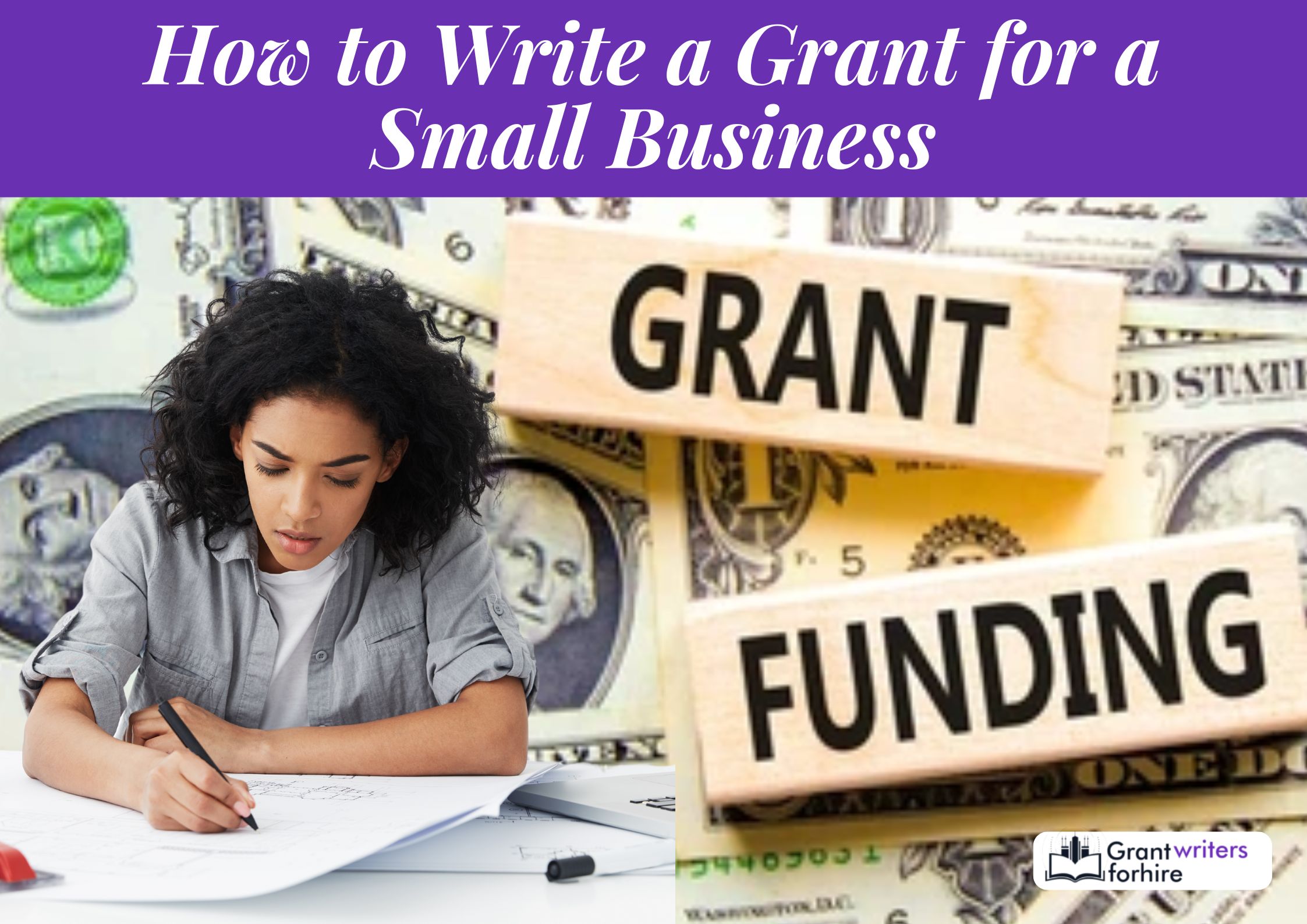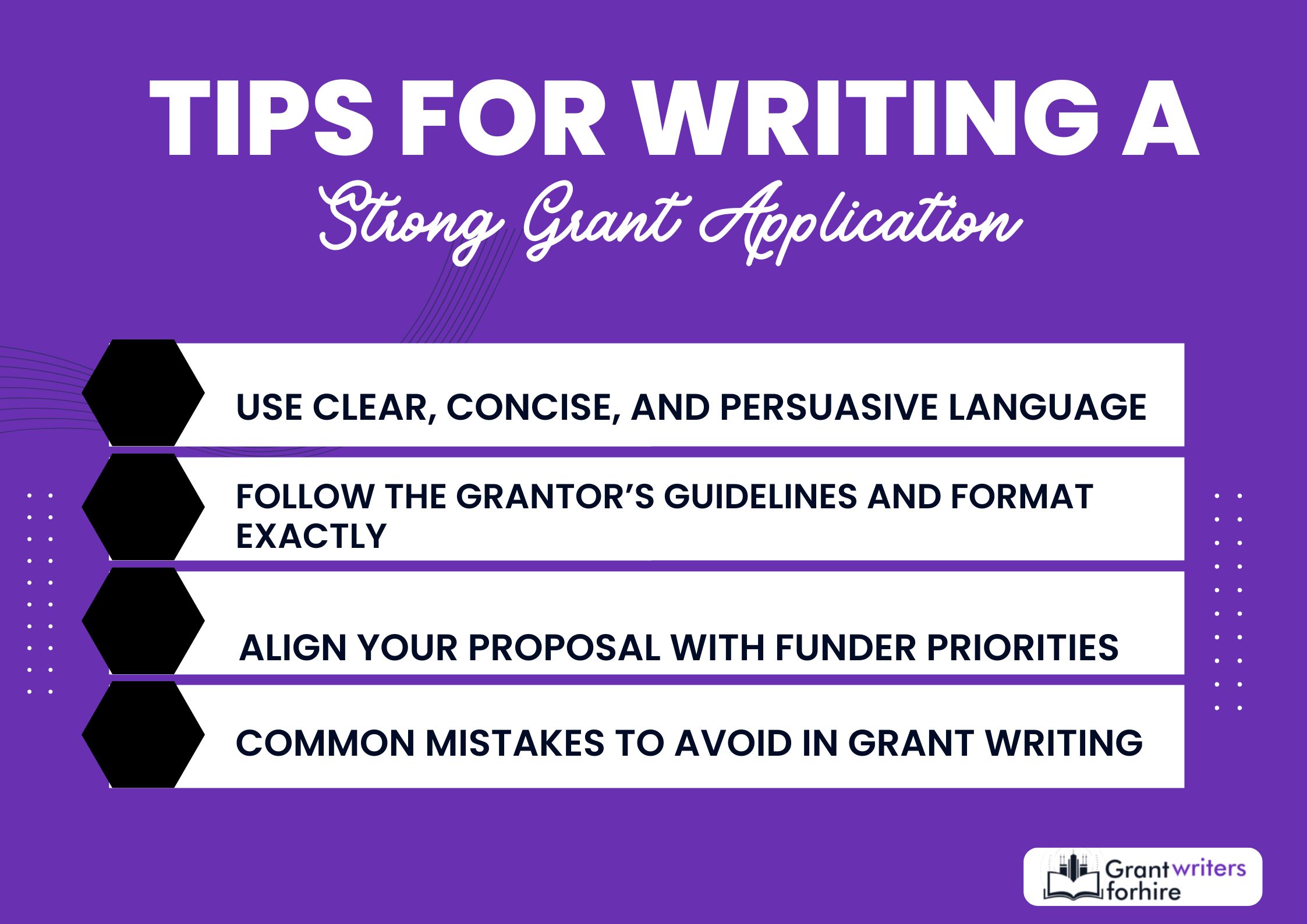How to Write a Grant for a Small Business.
Securing a grant can provide essential funding to help small businesses grow, launch new projects, or overcome financial challenges. However, writing a successful grant application requires clear planning, persuasive writing, and a deep understanding of what funders are looking for.

This article offers a guide to help small business owners write effective grant proposals that meet funding criteria.
Readers will learn how to describe their business needs, outline a realistic budget, and communicate their goals in a way that appeals to grant reviewers. The explanation on how to structure the proposal for maximum clarity and impact is also discussed. Whether you are applying for your first grant or seeking to improve your chances with future applications, this guide provides the practical tools and writing techniques you need. Let us begin by exploring the fundamentals of grant writing for small businesses.
What Is a Small Business Grant?
A small business grant is money given to business owners to help them start or grow their businesses. Unlike loans, grants do not have to be paid back, which makes them very helpful for new or small businesses. These grants often come from government programs, private companies, or nonprofit groups. The main purpose is to support businesses that can bring value to the community or create jobs. Grants can be used for buying equipment, training staff, or even paying for marketing.
The main difference between a grant and a loan is that a loan must be repaid with interest, while a grant is free money. However, grants usually come with rules on how the money should be used. To get a grant, you must meet specific requirements, which could be based on your business type, location, or who owns it.
Some grants are only for women, veterans, or minority owned businesses. Understanding what a small business grant is, and how it works, is the first step to applying for one successfully.
Types of Grants Available for Small Businesses
Small businesses can apply for different types of grants depending on their needs and who is offering the money. One common type is federal and state government grants. These come from public programs that want to support job creation, innovation, or local growth. Government grants often have strict rules, but they offer large amounts of funding.
Another type is private foundation and corporate grants. These come from companies or nonprofit groups that want to support small businesses, especially those doing good in the community. Some grants are made for certain industries like technology, farming, or businesses owned by women or minorities. These are called industry-specific grants and are made to help certain groups grow.
There are also grants made just for startups, which help new businesses get off the ground. On the other hand, some grants are for businesses that are already running and want to grow or improve. Each type of grant has different goals, rules, and amounts of money. Knowing the different types of grants is important to help you find the best one for your small business.
Who Can Apply for Small Business Grants?
Not every business can apply for every grant, so it is important to know who is allowed to apply. Many grants have rules based on location, ownership, or the type of business. For example, some grants are only for businesses in rural areas or certain states. Others may only allow companies in certain industries, like health, education, or farming. Business ownership also matters. Many grants are made for women owned, minority owned, or veteran owned businesses to help them grow and succeed.
There is also a difference between nonprofits and for-profit businesses. Some grants are only for nonprofits that help the community, while others are for businesses that make a profit. It is important to read the eligibility rules before applying. If your business fits the grant’s rules, you can apply with a higher chance of being chosen. Knowing who can apply helps you save time and focus on the right opportunities. Always check the details so you do not miss a chance to get support.
Preparing to Write a Grant Proposal for Your Small Business
Before you start writing a grant proposal, it is important to get ready the right way. First, you need to research and find the grant that fits your business. Look for grants that support your type of business, your location, or your goals. After that, gather all the documents you may need, such as your business plan, budget, and legal papers like licenses or registration. These documents help prove that your business is real and ready to use the funds wisely.
Next, learn about the grantor, the group giving the money. Understand what they care about and what kind of businesses they want to support. This helps you write in a way that shows your business is a good match. You also need to be clear about why you need the money and how it will help your business grow or help your community. When you prepare well, your grant proposal becomes stronger and more likely to be accepted. This step is key before writing any part of your application.
How to Write Each Section of a Small Business Grant
Writing a small business grant means following a clear structure. Each part of the grant tells the funder something important about your business. Start with the executive summary or cover letter. This gives a short overview of your business and why you are asking for funding. Next is the statement of need or problem. This explains what problem your business is solving and why support is needed.
After the statement, list your goals and objectives. Goals show what you want to achieve, and objectives explain how you plan to do it. The project description and timeline follows. This section shows what steps you will take and when. Your budget and funding justification comes next. It explains how you will use the money and why the amount you are asking for makes sense.
The organizational background and capacity section shares your business story and shows that you can complete the project. After that, it is important to write the evaluation and reporting plan. This shows how you will measure success and report progress. In the last part, include attachments and appendices such as your business license, letters of support, or past work. Each section should be clear, honest, and focused on how the grant will help your business grow.
Tips for Writing a Strong Grant Application.

A strong grant application helps your business stand out and increases your chance of getting approved. Many people miss their chance because they do not follow simple but important steps. Below are some easy to follow tips to help you write a clear and powerful application and greatly improve your chances of winning the grant. They include;
- Use clear, concise, and persuasive language.
- Make your writing simple and easy to understand. Avoid big or confusing words. Be direct and explain why your business needs the grant and how the money will help.
- Follow the grantor’s guidelines and format exactly
Always read the instructions carefully. If they ask for a certain format or specific documents, follow their request fully. Not doing so may get your application rejected. - Align your proposal with funder priorities
Find out what the funder cares about. Show how your business goals match their mission. This makes your application stronger and more likely to be chosen. - Common mistakes to avoid in grant writing
Do not leave out important details. Avoid spelling and grammar mistakes. Do not send the same proposal to every funder without changes. Each grant is different, so your writing must match the goal of each one. Taking time to do it right can make a big difference.
Where to Find Small Business Grant Opportunities
Finding the right grant for your small business starts with knowing where to look. One of the best places is government websites like Grants.gov or the U.S. Small Business Administration (SBA). These websites list many federal and state grants, and they are updated often. You can search by business type, location, or industry. Local economic development agencies are also a good place to check. These groups often support small businesses in your area with funding and advice.
You can also use online grant search tools. These websites collect and share many grant listings in one place to make searching easier. Some tools are free, while others may charge a fee. Another smart way to find grants is through networking. Talk to people in your industry, join trade groups, or attend business events. Sometimes, the best opportunities are shared by word of mouth. By using these sources, you will have a better chance of finding grants that match your business needs.
Do You Need a Professional Grant Writer for a Small Business Grant?
When applying for a small business grant, you can either write the proposal yourself or hire a professional. If you have strong writing skills and understand how grants work, you might be able to do it on your own. But if the grant is big, has many rules, or if you are busy running your business, hiring a grant writer can help.
A well trained grant writer knows how to explain your ideas clearly, follow the funder’s rules, and increase your chances of winning. Grant writers also help organize your documents, write your business story, and make sure everything fits the funder’s goals. They understand what makes an application stand out.
The cost of hiring a grant writer depends on how long and complex the proposal is. Some charge a flat fee, while others charge by the hour. It is important to ask for a clear price and know what is included before you hire one. Whether you write it yourself or get help, the goal is to submit a strong, complete application that shows your business is ready for funding.
What to Do After Submitting a Grant Proposal
After you submit your grant proposal, the process is not yet over. It is important to send a polite follow up email to confirm that your application was received. Most funders give a timeline for when decisions will be made, so make a note of those dates. If the funder has questions or asks for more details, respond quickly and clearly. This shows that you are serious and well prepared.
Some grant programs may ask you to join an interview or give a short presentation about your business. Get ready by reviewing your proposal and practicing how to explain your ideas.
If your application is approved, follow the next steps they give you, such as signing forms or starting reports. But if your grant is denied, do not give up. Ask for feedback so you can improve your next proposal. Use what you learn to make your business stronger and try again when another chance comes up. Every step helps you grow and get closer to success.
Frequently Asked Questions About Small Business Grants
Can I apply for more than one grant at a time?
Yes, you can apply for more than one grant as long as you meet the rules for each one. Make sure to follow each funder’s instructions and keep track of all deadlines.
What happens if I use the funds incorrectly?
If you spend the money on things not approved in your proposal, you may have to return the funds. You could also be disqualified from applying for future grants from that funder.
Are grants taxable?
Yes, most grants are considered business income and must be reported.

